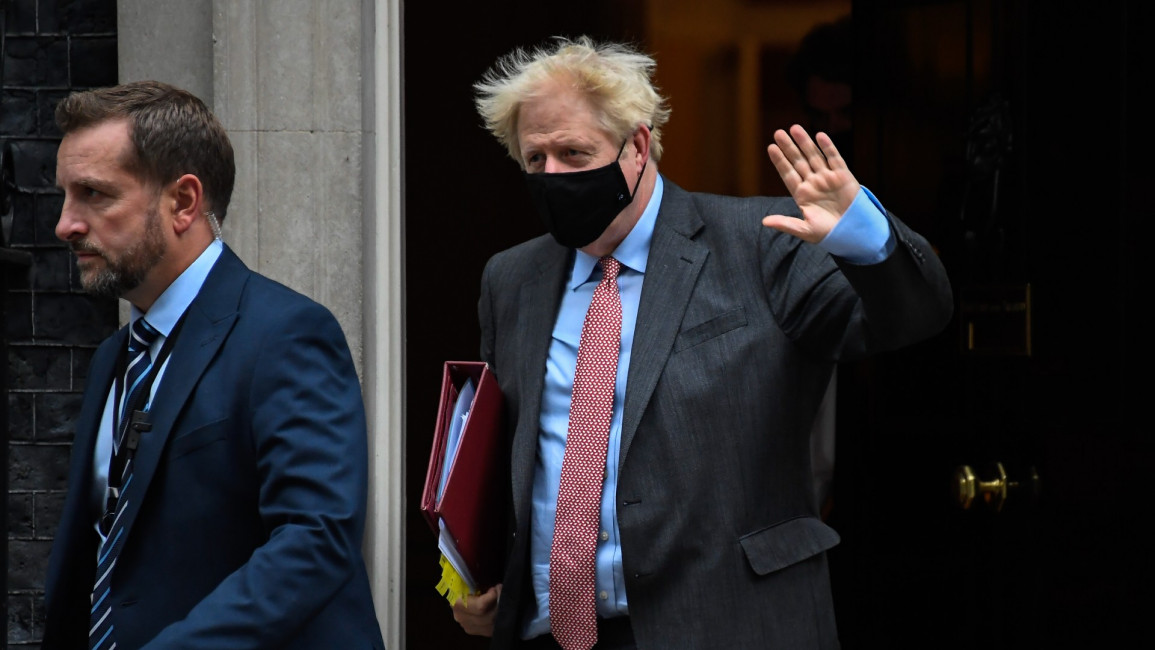
The Coronavirus Act criminalises people instead of helping them, it should never have passed
The Coronavirus Act was rushed through parliament back in March, in response to the pandemic, as a way for the government to put in place what it said were necessary and urgent laws to handle the spread of Covid-19. The measures they introduced, however, did far more to criminalise the population than to actually protect people from the virus.
If both the death toll in the UK and the fact that we are entering a second spike in rising infections are not indication enough that government efforts have been at best inefficient, and at worse completely misdirected, the details of some of these laws demonstrates it further. This point has been made repeatedly by human rights groups and activists who have denounced them as draconian policies.
Under the Act, the police were given the ability to detain any "potentially infectious persons" which in practice, can mean absolutely anyone. This incredibly vague power has been applied in an appallingly imprecise fashion. Over 140 people have already been wrongfully fined across England and Wales. In fact, there hasn't been a single lawful criminal case since the inception of the Act, according to the Crown Prosecution Service (CPS).
Furthermore, people of colour have been disproportionately targeted by the police under these authoritarian laws. As though it isn't enough that Global South communities are disproportionately represented in Covid-19 infection rates and deaths, they have been dealt another blow by the state through racist over-policing.
In addition to discrimination, these exceptional measures infringe on everyone's freedoms by undermining their right to privacy. Individuals could find themselves criminalised for not divulging information about where they have been and with whom.
 |
In addition to discrimination, these exceptional measures infringe on everyone's freedoms |  |
The Act seriously attacks all civil liberties as it also prevents the right to assembly - that is to protest. Given the political climate and the government's total disregard for people's lives and futures as it continues to withhold the funds and resources needed to address the crisis, undermining the right to demonstrate is an obvious way to avoid accountability. Criminalising the public - thereby shifting attention from their own behaviour - is another.
People in the UK are now forced to live under the control of state forces, which have been empowered to police based on "suspicion", as though the population is incapable of being cautious in order to limit the spread of Covid-19.
The policy whitewashes the entire reality of how the pandemic has been mismanaged by a prime minister who ignored early warnings that he should implement a nationwide lockdown, and enforce social distancing. It also avoids dealing with the fact that Tory policies have strangled public health services, leading to the absolutely avoidable death of thousands during the pandemic.
Twitter Post
|
Similarly, it was poverty, lack of protection at work, or insufficient state support that forced individuals to disregard social distancing rules and continue to commute and clock in. The people need help, infrastructure, and funding - not more police and repression.
If Johnson's handling of the pandemic has demonstrated anything, it's that he has no desire to rule in favour of the masses, to protect and support them. Instead he sees them as problems to deal with while making sure they continue to keep the economy running, and these laws are perfectly in line with this approach.
Read more: There is nothing unconscious about Tory bias
Our government capitalised on the hysteria, which it encouraged through its chaotic response, and saw opportunity amid the tragedy of the pandemic. It has successfully rolled back civil liberties, legalised policing dissent in the name of "public safety", and reduced the already narrow opportunity for scrutiny and accountability, by ensuring that any possibility of people collectivising their anger is effectively banned.
Despite media coverage suggesting turmoil among the Tories in the lead up to the vote, they were unfortunately pretty united on the day. Of the Conservatives, 330 voted to extend the Act, and of all the other political parties put together, an abysmal 24 voted against its extension. Over 300 MPs did not take part in the vote.
This was an opportunity for elected leaders to send a clear message to Johnson and his cabinet. Instead, the opposition sent one to the wider public that their suffering, freedoms, and anger are not a priority.
It seemed to matter little to Labour leader Keir Starmer that over 150 organisations called on the government to repeal parts of the Act that fundamentally harm disabled people who have had their social care stripped. Or, that almost 80,000 people have signed a petition calling for the Act's repeal.
 |
Undermining the right to demonstrate is an obvious way to avoid accountability |  |
The only shred of resistance was directed towards the time limit on scrutinising the PM, an empty gesture in the face of the mass abstention when it came to voting on the extension of the Act. The choice to abstain by so many Labour MPs was a betrayal, which reaffirmed that they are, along with the government, its policies and institutions, the problem.
The furlough scheme is ending, more and more people are finding themselves jobless, infections are rising, and resources are lacking, and still, we lack even the capacity to test people for Covid-19. There is much that this government will have to answer for.
Johnson knows this, as do his band of ministers who have paid more attention to hunting down migrants, censoring teachers and keeping big businesses happy, than dealing with the pandemic. Labour, instead of pushing back against these tactics, sits on its hands.
In the midst of the most severe crisis in a generation, there is no longer any opposition in the UK. As always, justice will be fought for from below. Or it will be denied.
Malia Bouattia is an activist, a former president of the National Union of Students, and co-founder of the Students not Suspects/Educators not Informants Network.
Follow her on Twitter: @MaliaBouattia
Have questions or comments? Email us at: editorial-english@alaraby.co.uk
Opinions expressed in this article remain those of the author and do not necessarily represent those of The New Arab, its editorial board or staff.


![President Pezeshkian has denounced Israel's attacks on Lebanon [Getty]](/sites/default/files/styles/image_684x385/public/2173482924.jpeg?h=a5f2f23a&itok=q3evVtko)



 Follow the Middle East's top stories in English at The New Arab on Google News
Follow the Middle East's top stories in English at The New Arab on Google News


